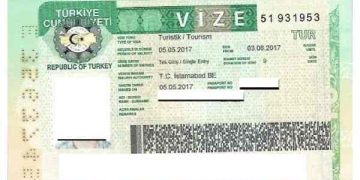Observer Report
The Hague
The International Court of Justice (ICJ) on Wednesday found that India’s submission pertaining to the acquittal and release of Kulbhushan Jadhav could not be upheld.
According to the ICJ, the conviction and sentence of Kulbhushan Jadhav were not to be regarded as a violation of Article 36 of the Vienna Convention.
“As regards India’s claim based on the Vienna Convention, the Court considers that it is not the conviction and sentence of Mr. Jadhav which are to be regarded as a violation of the provisions of the Vienna Convention,” read the verdict. The ICJ allowed India consular access to Kulbhushan Jadhav and called on Pakistan to review and reconsider his conviction and sentence.
According to the ICJ, Pakistan deprived India the right to communicate and have access to Kulbhushan Jadhav, to visit him in detention and to arrange for his legal representation and thereby breached the obligations under Article 36, paragraph 1 (a) and (c), of the Vienna Convention on Consular Relations.
Article 36 states that foreign nationals who are arrested or detained be given notice without delay of their right to have their embassy and consulate be notified of the arrest and have consular officers visit them.
“Islamic Republic of Pakistan is under an obligation to inform Mr. Kulbhushan Sudhir Jadhav without further delay of his rights and to provide Indian consular officers access to him in accordance with Article 36 of the Vienna Convention on Consular Relations,” read the verdict.
Pakistan has been directed to suspend the execution of the death penalty awarded to Jadhav till it fulfills the new conditions (ensuring consular access and ‘effectively’ reviewing the case).
The ICJ, however, also rejected most of the other remedies sought by India, which included the annulment of the military court decision convicting Jadhav, his release and his return to India. It cited limitations of its jurisdiction in turning down those appeals.
Pakistan’s team, headed by Attorney General Anwar Mansoor Khan, had reached The Hague to hear the verdict. The team also included Foreign Office Spokesperson Dr Muhammad Faisal.
Jadhav, a serving commander of the Indian Navy associated with Indian spy agency Research and Analysis Wing, was arrested on March 3, 2016, from Balochistan on allegations of espionage and terrorism. In his subsequent trial at a military court, Jadhav had confessed to his involvement in terrorist plots.
The spy was subsequently sentenced to death in 2017. However, India insisted that Jadhav was not a spy and said he was kidnapped from Iran. On April 10, 2017, Army Chief Gen Qamar Bajwa had endorsed the death penalty for Jadhav. In June 2017, the Indian spy had filed a mercy petition against the death penalty, in which he again confessed to his involvement in terrorist activities.
However, before Pakistani authorities could make a final decision, the International Court of Justice, after being approached by India, had ordered a stay in his execution through an interim order. During the hearing of the case in the international court, India denied Jadhav was a spy and had asked the ICJ to order his release because he was denied consular access and not allowed to choose his own defence lawyer.
Attorney General of Pakistan Anwar Mansoor Khan had in turn argued that Jadhav was an Indian spy sent to Balochistan to destabilise the country and therefore not entitled to consular access. He had said that “India’s claim for relief […] must be dismissed.”
Khan had told the court that Jadhav ran a network “to carry out despicable terrorism and suicide bombing, targeted killing, kidnapping for ransom and targeted operations to create unrest and instability in the country”.
“His unlawful activities were directed at creating anarchy in Pakistan and particularly targeted the China-Pakistan Economic Corridor,” Khan had told the 15-judge bench. India’s lawyers told the court in February that it was a “farcical case” based on “malicious propaganda”, while Pakistan’s lawyers hit back by accusing Jadhav of “terrorism.
Meanwhile, Pakistan has welcomed the ‘fitting’ verdict issued by the International Court of Justice on Wednesday, in which it rejected New Delhi’s plea to acquit and release self-confessed Indian spy Kulbhushan Jadhav but ruled that he be allowed consular access.
Addressing a news conference in Islamabad, Foreign Minister Shah Mehmood Qureshi said that India could not achieve what it desired by going to the international court. “The ICJ didn’t annul the military court’s verdict against Jadhav… this shows its confidence on Pakistan’s judicial system which is very fair and transparent,” he added.
Shah Mahmood Quraishi called the International Court of Justice’s verdict on Commander Kulbhushan Jadhav, ‘a victory for Pakistan’. Qureshi said that the country’s Army Act is very clear on capturing a serving Indian Navy officer, who was travelling on fake passport. “It is very obvious that the case would be run in a military court… same would’ve happened in India.”
Terming the ICJ verdict “fitting and welcoming”, Quershi said, “We thank the Almighty who has made Pakistan victorious at the international forum.” He said by respecting the verdict, Islamabad will proceed further on the matter by remaining within the ambit of laws of the land.
Earlier, the Foreign Office said that Pakistan, as a responsible member of the International community “upheld its commitment from the very beginning of the case by appearing before the honourable court for the provisional measures hearing despite a very short notice”.











